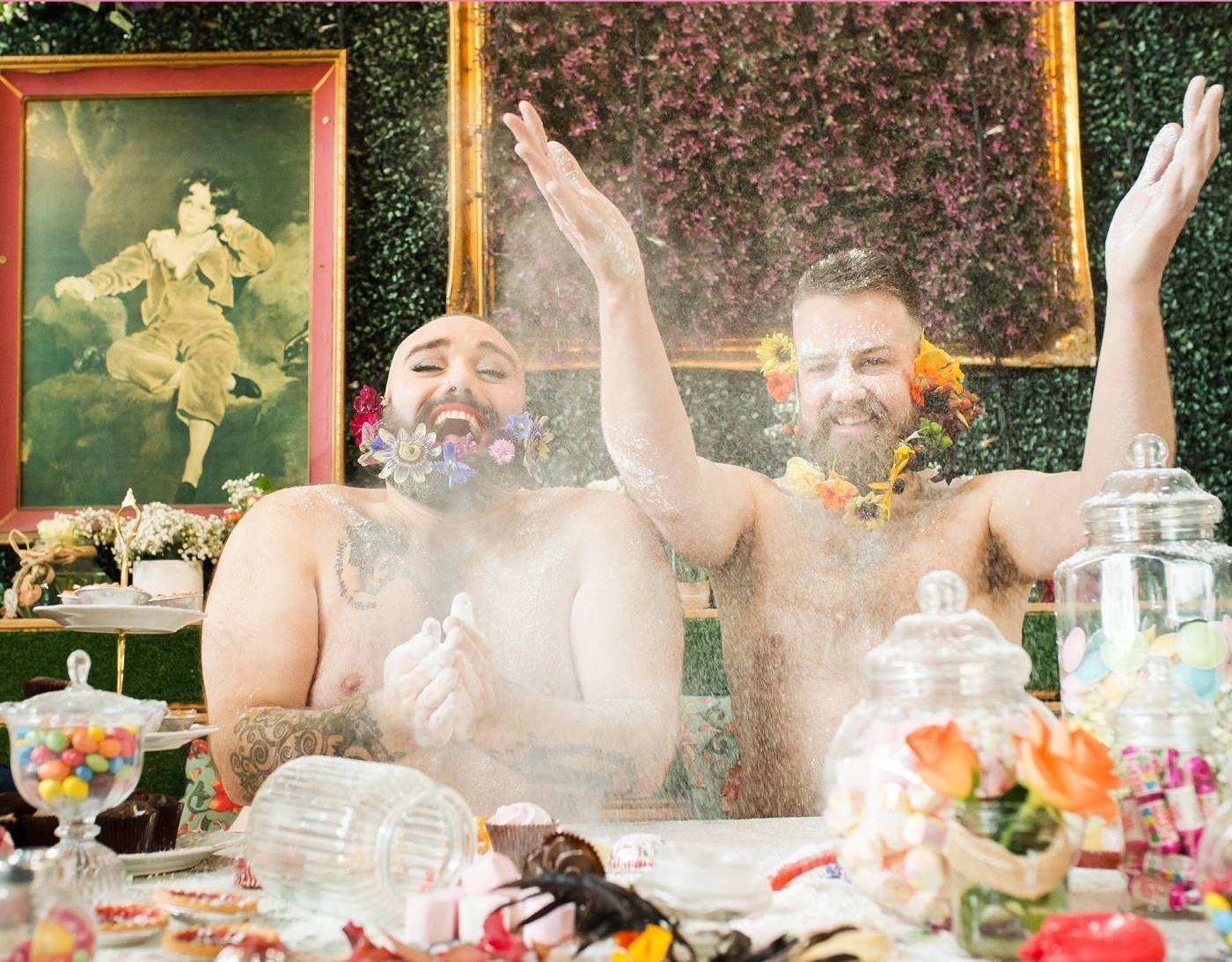
Research

SELECTED WORKS
Co-editor: Queer Dramaturgies: International Perspectives on Where Performance Leads Queer (2016)
This international collection of essays forms a vibrant picture of the scope and diversity of contemporary queer performance. Ranging across cabaret, performance art, the performativity of film, drag and script-based theatre it unravels the dynamic relationship performance has with queerness as it is presented in local and transnational contexts.
Oh wow! He's queer! Queering Panto in Belfast: An Interview with Ross Anderson-Doherty (in Drag Histories, Herstories and Hairstories: Drag in a Changing Scene Volume 2, 2021)
In this chapter, based on interview with performer Ross Anderson-Doherty, the authors examine the ways in which the panto form might be queered – an especially charged project in the particular locality of Belfast, North of Ireland.4 The chapter focuses on how Anderson-Doherty works to queer panto, largely in the role of the dame, through casting, rehearsal processes and in performance. In the Cabaret Supper Club and in panto, Anderson-Doherty is performing to largely heterosexual audiences, and he highlights some of the challenges he has faced, but also the sorts of queer interventions he has been able to make through performance. His approach to gender and his lived experience, coupled with the range of his work, have often clashed with the culture he works within, leading him to identify and adopt a set of strategies we might see as queering the spaces and artforms he engages with.
Going Feral: Queerly De-Domesticating the Institution (and Running Wild) (in The Routledge Companion to Theatre and Politics, 2019)
This chapter is written from the position of the queer-identifying theatre practitioner-scholar and interrogates their relationship to the institutions of theatre, funding bodies, festivals and the academy. The queer-identified artist, like the queer-identified researcher, is always functioning in a deeply ambivalent position. What does it mean, when one of the fundamental principles of queer is that it sets itself up against what is normative, for this queer-identified person to exist within, be paid or salaried within, or seek approval from, one or more of these institutions? What happens to (their) queerness? The parallels between theatre and the academy are close and multiple; I suggest this is particularly so around the field of queer Practice as Research (PaR). The chapter examines a recent example of the author’s PaR work on HIV and AIDS in performance, GL RY/WHoLE (Belfast, 2016), to argue that the uncomfortably-placed queer artist-scholar might appropriate a feral modus operandi in order to radically de-domesticate the domesticating strictures and privileges of these institutions. In other words, to take the money and knowledge and run wild.
Alyson completed a Practice as Research (PaR) PhD at the University of Melbourne (2009). The thesis, 'Experiencing Kane: an affective approach to Sarah Kane's experiential theatre in performance', included direction of Kane's 4.48 Psychosis at Red Stitch Actors Theatre, Melbourne, 2007.
She holds an MA in Theatre Studies and a BA Hons in Russian from Leeds University, UK, and a Postgraduate Certificate in Education (PGCE) in Drama from Goldsmiths College, London. Alyson has worked as a lecturer in theatre studies/drama in the School of Creative Arts, The University of Melbourne, Queen's University Belfast and Brunel University, London.
Alyson is a freelance director and dramaturg and has worked in a broad range of situations over the last 30 years: form the four-stage Los Angeles Theatre Cente, through Fringe, independent and community theatre, to making forum theatre with secondary students. Alyson's research, artistic practice as a director, teaching and activism converge around gender and sexuality, particularly queer performance and dramaturgies and contemporary representations of HIV and AIDS. She has written widely on these areas, most notably co-editing the collection Queer Dramaturgies: International Perspectives on Where Performance Leads Queer (Palgrave, 2015) with Prof. Stephen Farrier, and shortlisted for the Theatre and Performance Research Association (TaPRA) editing award. She also co-edited HIV and AIDS Performance in the Twenty-First Century: An International Collection' with Prof. Dirk Gindt (Palgrave, 2018).
Alyson's focus is around the nexus of queer theories and feminism. She is committed to queer representation and works closely with the community, largely through her work with queer arts festivals. She established and convened a performance and research programme Queer at Queen's at Queen's University as part of Outburst Queer Arts Festival. She co-founded the Queer Futures Working Group for the International Federation of Theatre Research (IFTR), which is a vibrant network developing the work of queer performance scholarship and she is currently on the Executive Committee of IFTR.
Much of Alyson's practice as a theatre maker and scholar is realised in large-scale practice-led research projects. These include her thesis, on directing Kane's 4.48 Psychosis (2002-9), developing dramaturgical and directing strategies that respond to theories of affect; Bison (2008-11), encompassing directing Lachlan Philpott's play of that name in Belfast and London, and writing about gay male sexualities, cultural translation and HIV; The Trouble with Harry (2010-2014),which included directing the premiere of Philpott's historical play in Belfast (2013) and for the Melbourne International Arts Festival (2014), the latter production winning Green Room awards for direction and best production in the Independent category. Her writing theorises this work through queer theories of temporality and historiography; GL RY (2013-present) on HIV and AIDS in contemporary life and performance; Cake Daddy (2017-19) on queerness and fatness.
Current work includes Feral Queer Camp, a community-based project developing ways to think about queer performance in partnership with queer arts festivals (2018-present), and for 2023 in partnership with the Science Gallery Melbourne and promiscuous/cities (2021-23). Alyson directed the UK premiere of promiscuous/cities at RCSSD in 2022 as part of the British Council's UK/Australia Season. Alyson's main areas of research and supervision are in gender and queer theory/performance, and social justice in the arts.